If you’re one of the millions of childfree adults, you may believe you have nothing to pass on to future generations. As such, you may see doing the work of unpacking your unconscious biases as a waste of time.
While having no biological children of your own may make you believe you are less important than those who have children, the four types of ancestors show that childfree adults do have something to pass on aside from their DNA.
Using the acronym F.I.R.E., I’ll show you the four types of ancestors that exist and give tips on how you, a childfree adult, can leave a lasting legacy. If you do have biological children, you’ll find the various types of ancestors of benefit to you.

Mom, dad, son, daughter, brother, sister, uncle, aunt, grandma, grandpa, cousins first, second, or thrice removed are just some of the individuals who are in your family tree. These are examples of familial ancestors, those who pass on genetic and cellular memories.
Genetic memories contain, not only your DNA sequence, but also clues as to which region of the world your ancestors originated…
The popularity of DNA companies shows a strong desire for people to not only know who they come from, but also where. By knowing your roots, you can get reacquainted with the culture, foods, rituals, and folklore that your ancestors abandoned.
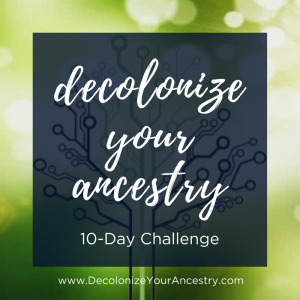
Patrons in my exclusive community, who discovered their country/region of origin after doing a DNA test, used a program called Decolonize Your Ancestry to help them become more familiar with their roots.
The 10 lesson program gave patrons the tools on how to discover their indigenous customs. Doing so helps them celebrate those lost traditions, instead of appropriating others.
Cellular memories are also passed on by familial ancestors…
Known as epigenetics, cellular memory is the study of how generational trauma is transferred from one generation to the next.
Dr. Joy Dugruy studied the effects of chattel slavery on African-Americans and published her research in a book entitled Post-Traumatic Slave Syndrome. Dugruy defines post-traumatic slave syndrome as:
a condition that exists when a population has experienced multi-generational trauma resulting from centuries of slavery and continues to experience oppression and institutionalized racism today. Added to this condition is a belief (real or imagined) that the benefits of the society in which they live are not accessible to them.”
Throughout her book, Dugruy provides examples of how the trauma of chattel slavery shows up in the behaviours, attitudes, and mental health of those descended from slaves.
An example Dugruy gives is the fear that Black parents have around their children attending slumber parties, or the fear they have of their adult children taking trips overseas.
Slaves did not leave the “safety” of the plantation due to the fear of being harassed, raped, or killed. Exploration and travel is discouraged due to this traumatic memory passed on at the cellular level.
Being a familial ancestor is obvious if you have children…
The connection, however, is less obvious if you’re childfree. Despite this, childfree adults can still become a familial ancestor.
How? You can become the family’s history by putting together the family tree. While you may not have children of your own, your nieces, nephews, or cousins will benefit from your research.
By taking on the role of family history as a childfree adult, you will also identify the generational trauma stuck to your bloodline…
Patrons in my exclusive community have been able to identify the ancestor who authored generations of abandonment, neglect, addiction, or abuse. Uncovering this information isn’t done to blame or demonize the ancestor; they do this to heal the cellular memory so the trend stops once and for all.
Are you interested in taking on the role of family historian? Before you say, “Yes,” take a look at the second type of ancestor.

I used to be completely mystified by people falling apart and collapsing into tears when a musician passed away. The response, to me, was over the top, considering the fan did not have a close relationship with the singer.
But now I understand…
Some fans develop a deep connection to the musician because their artistic contribution shaped the fan’s identity in a profound way.
Those who pass on their creations in the form of ideas, innovations, and inventions are who I call ideological ancestors. Some call these spiritual ancestors, but given that spirituality is defined is so many different ways, I’ll use the term ideological ancestor instead.
Ideological ancestors aren’t just musicians…
They are also historical or religious figures, authors, philosophers, scientists, futurists, film or television producers, even your elementary school teacher, just to name a few. Ideological ancestors can be living or dead. It doesn’t matter. What matters is how deeply you feel about the impact of their creation on who you are as a person.
You, too, can become an ideological ancestor…
If you make this commitment, you’ll need to spend your time creating, and not binge watching your boredom away while eating ice cream.
The focus has to be on creating, not monetization. While you may be excited by your creation, you might not make money off of it. You may even face ridicule.
Picasso’s paintings were made fun of while he was alive. It wasn’t until years after his death that his work was recognized as contributing to human enlightenment.
Be sure to leave instructions to your estate…
Both Prince and Aretha Franklin went to their graves without a legal will. Money was spent on lawyers and time wasted in a court of law to decide who gets what, considering there were multiple heirs.
While you may not have the millions of dollars that Prince and Franklin had…
…if you plan to become an ideological ancestor, it’s your responsibility to inform your family members what to do with your creations upon your passing.
Without your instructions, your creations may be tossed in the garbage, robbing future generations of your wisdom. Or, distant relatives may suddenly appear, suing the family members you actually have a relationship with for access to your estate.
Here are some ways to preserve your creations:
- Bequeath them to the National Archives in your country. You do not need to be famous as the National Archives is interested in preserving the collective thought of average and not-so-average citizens.
- Donate them to your alma mater. The university or college you graduated from may be interested in your creations, depending on the work you did while you were alive. Octavia Butler, a futurist writer, left her papers to her alma mater, allowing future generations to study both her published and unpublished works.
- Assign an artistic / literary executor to manage your creations upon your passing so your family members do not throw out what they deem to be junk.
I know that talking about death goes counter to what you’ve been taught in our positivity-soaked society. Love and light, right? The truth, however, is that your time is finite. What will you do with the time you have left so you die empty? Before you answer that question, let’s explore the third type of ancestor.

Do you collect points when you shop at the store? Do you get special deals because you’re a member of a club? There are certainly advantages to belonging to certain groups. And depending on the group, you can pass on deals and points to others.
That’s what relational ancestors do…
They pass on affinity-based advantages to current and future generations. Membership does, indeed, have its benefits and you can gain privileges, opportunities, even assets depending on your group affiliation.
Relational ancestors are different from familial ancestor simply because the latter is based on blood relations…
Those blood relations can come in handy. For example, the son of a famed basketball player will find that his entry into professional basketball will be much easier due to their blood relationship. However, in most cases, simply holding membership in that group is enough to give you access to the rewards.
Sororities, fraternities, gangs, churches, professional associations…
…even the Illuminati are just a small sample of groupings in which membership has its advantages. But advantages based on affinity are not just related to associations or religious movements. Social hierarchy based on a particular function of biology is deeply woven into how certain citizens within a country are treated.
For example, if your skin is light, if your gender is male, if your body is able, and if you prefer to date / marry those who are not the same sex as you are, society will reward you with privileges and opportunities compared to those who do not hold the same biological labels.
This is the reason why “sins” committed by your ancestors are your responsibility, especially if you benefit from the outcome of that bad deed…
An example is when White Americans and Black Americans talk about slavery. Whites demand that Blacks “move on” from the past and stop complaining about slavery because “Well, I didn’t own slaves.”
However, due to the wealth, health, and social inequities between White and Black Americans, it’s clear that affinity-based advantages were passed on from White ancestors to their descendants, while the same didn’t happen for those who have slavery in their ancestry.
Although you may not have personally owned slaves, your relational ancestors passed on privileges, opportunities, and wealth that you benefit from today.
Affinity-based advantages are not all bad…
That’s why it’s called an advantage. There are benefits to being loyal to a brand, nation, or social grouping.
If you decide to become a relational ancestor, it’s important to understand the difference between affinity-based advantages which reward loyalty versus ones which provide privileges to some by dehumanizing, oppressing, and suppressing others.
If your affinity-based advantages are based on the subjugation of others, then you have an obligation to change them, or simply let your membership in that group lapse.
What memberships do you hold? Did your relational ancestors set up affinity-based advantages as a result of suppressing others? If yes, will you let your membership in that group expire? If your affinity-based advantages do not dehumanize others, how can you pass on those advantages? Before you decide, let’s take a look at the last ancestor.

I think I missed my calling as an arborist because I’m obsessed with trees. There are so many lessons they can teach us.
Trees aren’t the only objects in nature that can teach us lessons…
So, too, can animals, insects, celestial bodies, rivers, oceans, plants, and seeds, collectively known as nature. Each holds memories that can be applied to how we can adapt to change. In her book entitled Emergent Strategy, Adrienne Maree Brown points out that the ocean has lessons to teach:
Have you observed the ocean? The waves are not the same over and over – each one is unique and responsive. The goal is not to repeat each other’s motion, but to respond in whatever way feels right to your body. The waves we create are both continuous and a one-time occurrence. We must notice what it takes to respond well. How it feels to be in a body, in a while – separate, aligned, cohesive. Critically connected.”
Brown writes that the patterns and rituals nature exhibits teach us how to be resilient, interdependent, decentralized, transformative, and adaptive…
The problem is that it can be difficult to understand and see nature’s lessons, especially being raised in settler countries where we’re not taught to honour the environment.
That’s why those who have been endowed with the gift to interpret nature’s memories are the ones who can pass on that knowledge to current and future generations. These environmental ancestors are not just teachers; they are also stewards of those memories.
If you plan to become an environmental ancestor, focus on an aspect of nature that fuels your passion…
If it’s the cycle of the moon, study it, then share its lessons. If it’s the way bees live, study their habits, then share their lessons.
A word of caution – if you are not indigenous to the lands you live on, I recommend that you allow those with millennia of knowledge be the teachers about the lands and all within it.
Colonialism and the age of discovery inspired the explorers, colonists and early settlers to get as much out of the land as possible. Wars were fought, blood was shed, and people, plants, and animals were forcibly relocated. What settlers and their descendants have been taught is that the land is to be occupied, used, then sold.
Use your settler privilege to elevate the teachings of environmental ancestors who are indigenous to the lands you live on…
Even if you have a passion for herbs, seeds, or other parts of nature, you will never be able to learn everything you need to know about these lands because your arrival is too recent.
You can still become an environmental ancestor…
Learn about nature and share the lessons that animals, insects, celestial bodies, rivers, oceans, plants, and seeds teach us. But be very careful about your intentions around profitability.
Can you stand with integrity behind a self-created certification program, home study kit, or coaching program about plants, seeds, and herbs – PLUS charge money – if you’re not indigenous to the lands these items grow on? I’ll leave that to you to answer.
Which Ancestor Will You Become?
The four types of ancestors show that whether you have children or not, you can participate fully in leaving a legacy for future generations. You can become one, two, or all. Whichever you choose, focus on that as your legacy so you become a better ancestor.
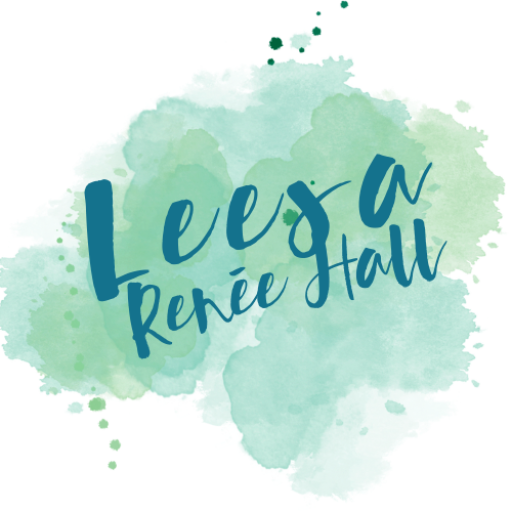
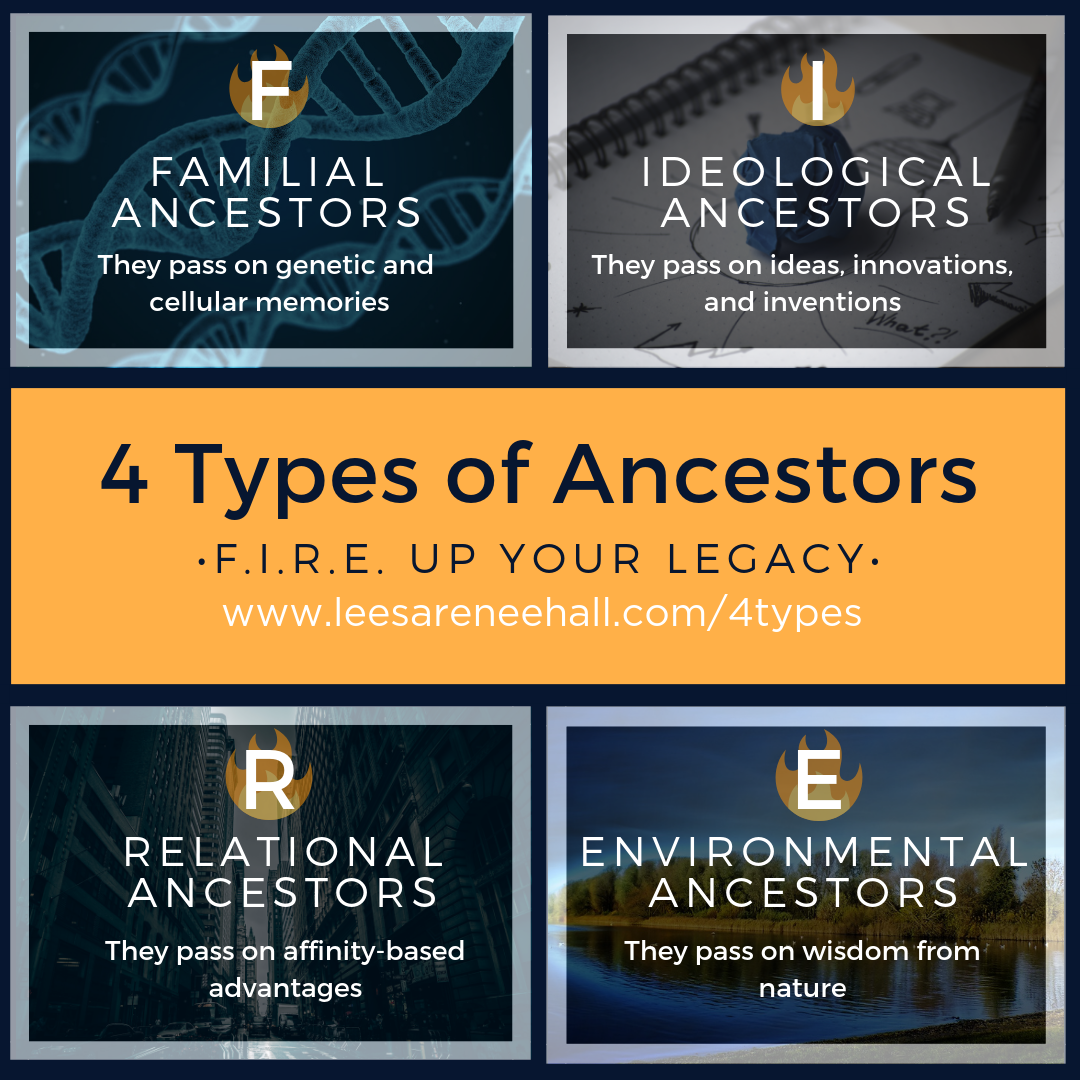
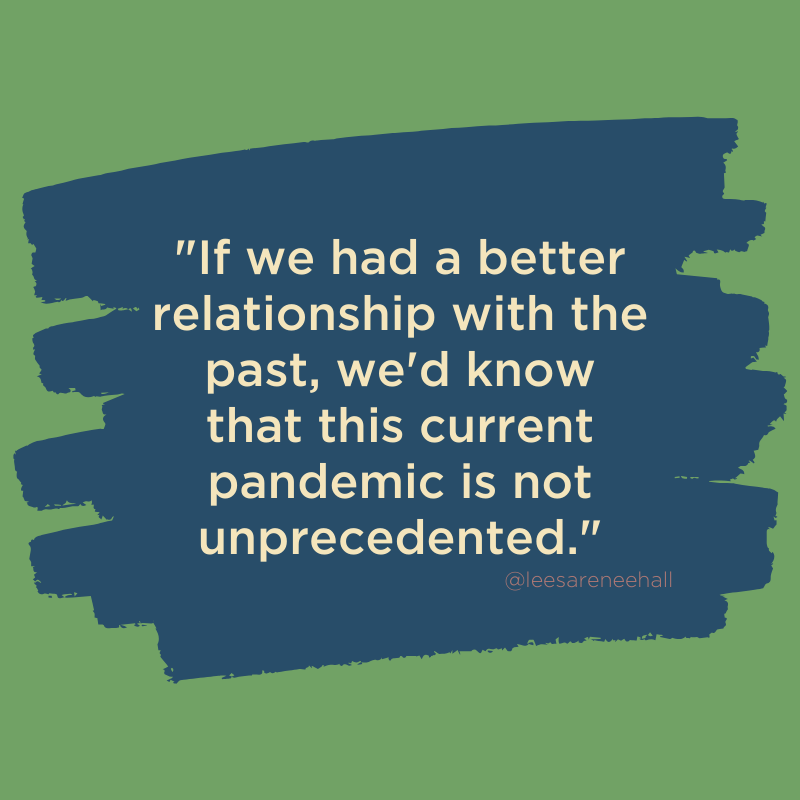
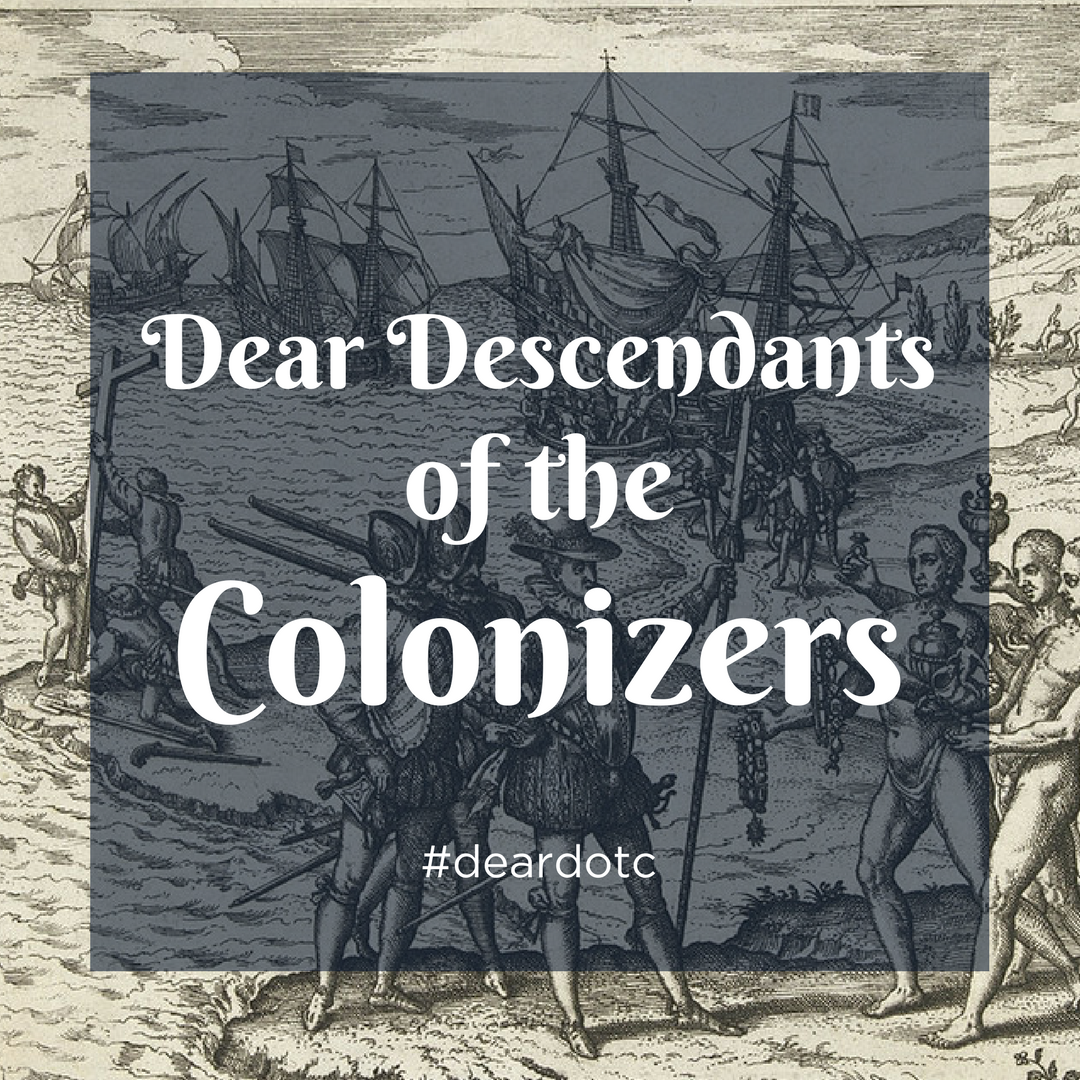
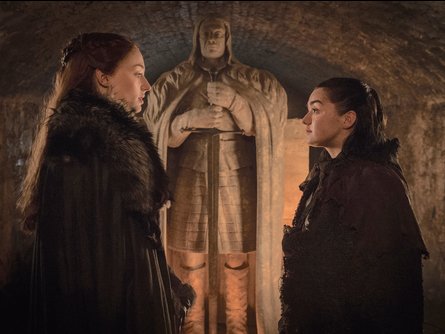
0 Comments
Trackbacks/Pingbacks